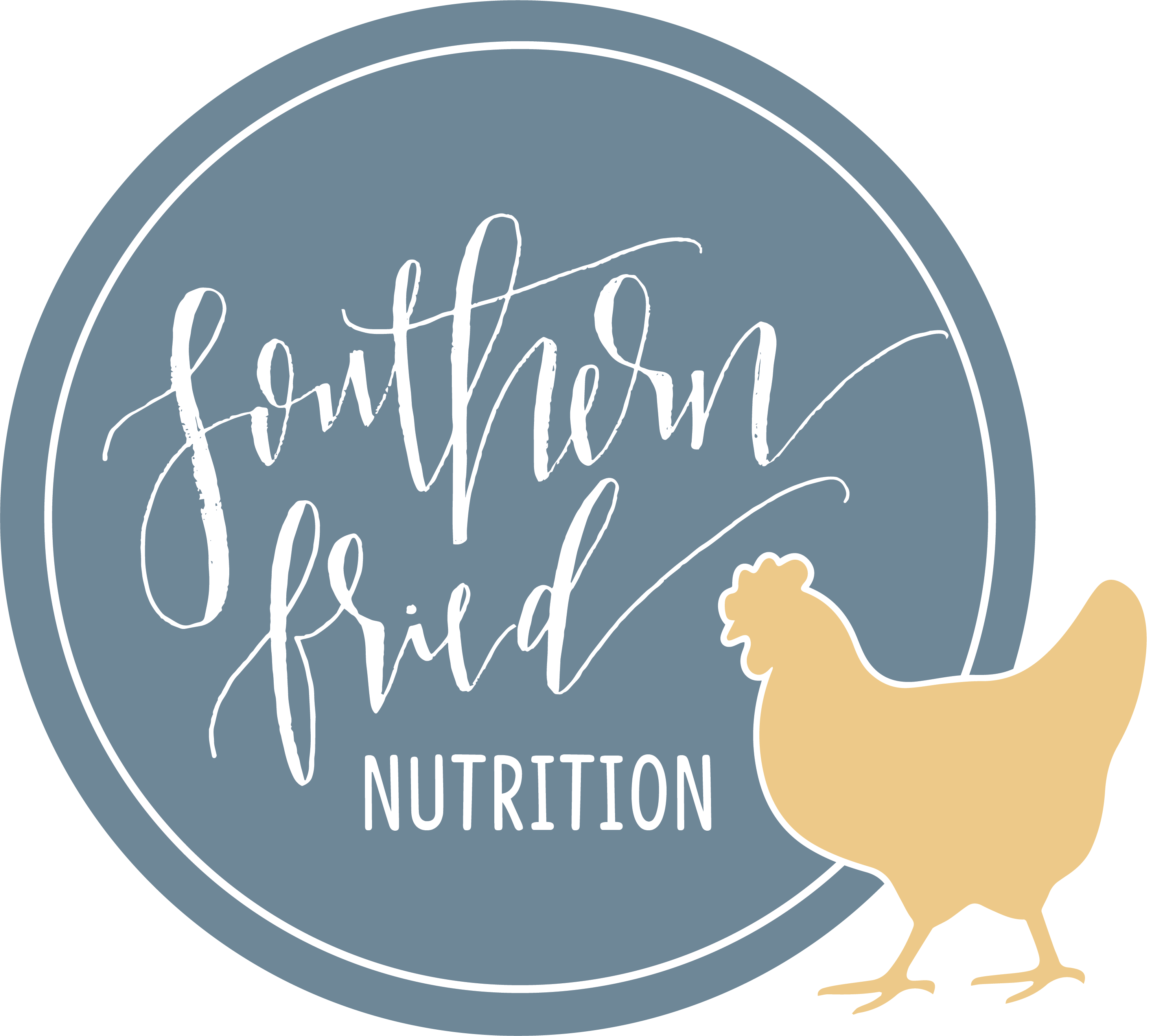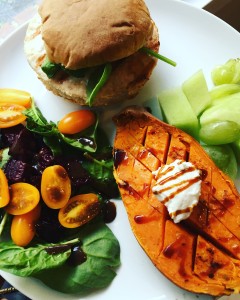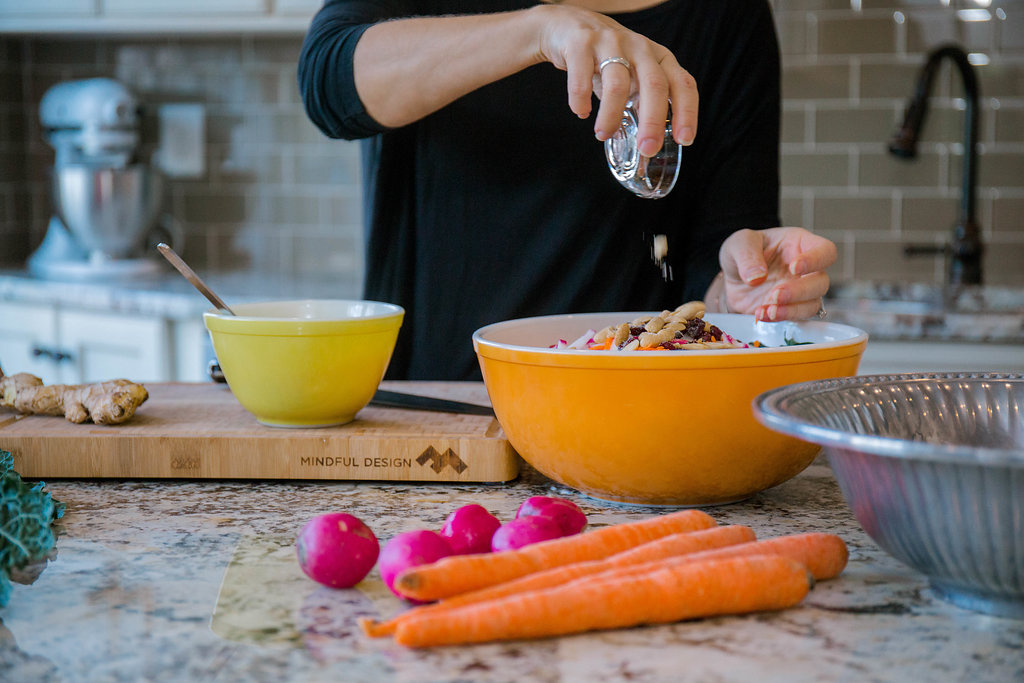I’m a very positive person (just ask anyone who knows me!). But sometimes I get really frustrated by the snake oil salesmen out there trying to make a buck off of people’s desire to find the “easy” way to be healthy There’s some variation on what makes up a healthy diet that can be adjusted just for this purpose – for instance, you can eat meat or not, enjoy dairy or choose an alternative, be hooked on seafood or skip it and still be healthy. Various percentages of fat, protein, and carbs can all lead you
to weight loss and a vibrant life. In short, there’s no ONE perfect diet for every person. There are patterns – ways of eating and living – that lead to reduced risk for disease, increased vitality, and longer life. We can respectfully pursue what works for each of us and I can work within almost anyone’s preferences. I’m happy to help my clients incorporate the science to meet their preferred way of eating.
But… there’s a really important word in that last sentence. Did you catch it? SCIENCE! (If you got it, you get 1,000 bonus points to be redeemed for your favorite imaginary prize.) While people can certainly have any opinion they want about food and nutrition, they cannot suggest that their non-evidence based opinion is fact. I get so frustrated with bad advice out there from quasi-health experts who promote crazy, pseudo-science to create bogus diets and sell products – services, books, supplements, and the like. And personal experience is not science. It’s interesting and can be inspiring, but it is not research, evidence that proves something is true. This is where I get into so many heated discussions, lose friends, and alienate strangers. I feel bad about it! Seriously. And at the same time, I can’t help myself.
Here’s the deal: It’s my professional and ethical responsibility to be honest and to tell people what
the science says. Sometimes there’s not good research. Sometimes there are differing opinions among the experts. A lot of the time, there is mutual agreement. Nutrition science is an evolving science, but it’s still a science. Just because someone eats, takes beautiful pictures of their perfect plates, has great marketing prowess and/or a loud platform does not make them a nutrition expert. Nor does the fact that they may have an online “nutrition” certificate or training, completed a program to be a coach, or hang out their “shingle” calling themselves an expert. This is a not a knock on all those sincere people who are working to inspire others toward a healthier life, yet don’t have a nutrition degree. There are many amazing folks out there working hard to help people lose weight, get healthy, and live fitter lives. By all means, get healthy eating inspiration wherever you can! I love instagram and twitter and facebook for fun and easy recipes, lovely pics of pretty meals that I can make at home. Many of my favorite food photogs are awesome at creating spectacular images that make my mouth water. But, if your goal is to manage an existing medical condition (including obesity), reduce your risk for disease, and/or get the most out of every bite…
For the best nutrition advice and reliable guidance on what and how to eat for your personal health, registered dietitian nutritionists (RD/RDN) are the very best source. I know, I’m biased because I am one. Some medical docs and post docs are also great sources of nutrition advice because they’ve done the work to study the research – though most docs get very little nutrition education. Compare for yourself! Would you rather trust someone who has at least a bachelors of science degree in the nutrition from an accredited university; has completed more than 900 hours of supervised practice/internship; passed a rigorous national exam; is licensed (in most states); and must maintain annual continuing education… or someone who took a handful of (usually) online classes or who took a few nutrition classes to complement their [fill in the blank] certificate or degree? I’m all for lifelong learning and love online learning for a variety of topics, but for someone who claims to be a health professional? What’s more valuable than your health? Do you want to trust it to just anyone?
Bottom line is that I want you to be really healthy. Like, really. healthy. I want you to avoid the pitfalls of believing the hype, wasting your money on things that don’t improve your health, and missing out on the simple nutrition choices that can lead you to your most energetic, nutritious, and joyful life. It might not always seem as sexy, since you won’t hear wild promises about dramatic changes that happen overnight, but implementing evidence-based nutrition counseling leads to sustained weight loss, disease risk reduction, and a healthier life. That’s pretty sexy to me.
{Stepping off my soapbox now…}




Olivia
DietitianSherry
Noreen gallo
DietitianSherry
Ann
DietitianSherry
RaffaelaMarie Rizzo Fenn
DietitianSherry